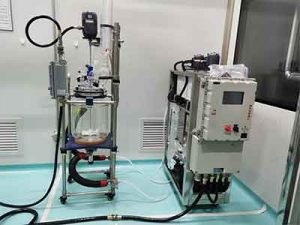circulation heater
Circulation Heaters: Efficient Heating for Industrial Applications
Circulation heaters play a significant role in various industrial applications by providing precise temperature control for fluids in a closed-loop system. These heaters offer numerous benefits, including improved productivity, enhanced product quality, and reduced energy consumption.

Principles of Circulation Heaters
Circulation heaters operate by transferring heat to a fluid as it flows through the heater. They can be configured for direct heating of process fluids or indirect heating of processes and systems. Direct heating involves the process fluid circulating directly through the heater, while indirect heating uses a thermal fluid circulated through a heat exchanger or piping system to radiate thermal energy into a system.
Efficiency of Circulation Heaters
The efficiency of circulation heaters is determined by their ability to transfer heat with minimal energy loss. Factors affecting efficiency include the type of heating element, the design of the heat exchanger, and the control systems employed. Advanced circulation heaters use feedback mechanisms to adjust the heat output, ensuring precise temperature control and energy conservation.
Safety Features

Safety is a critical consideration in the design of circulation heaters. These systems are equipped with features such as automatic shut-off in case of freezing temperatures and fail-safe mechanisms to prevent damage to the heater or the system it is heating.
User Convenience
Circulation heaters are designed for user convenience, with digital controls and remote monitoring capabilities. Some advanced models can automatically switch between heating modes based on external temperature conditions, reducing the need for manual intervention and providing ease of use.
Maintenance
Regular maintenance is essential for the optimal performance of circulation heaters. This includes checking for leaks, inspecting heat exchangers, and ensuring that the system is clean and free of debris that could impede performance. Maintenance also involves ensuring that the control systems are functioning correctly.
Industry Standards
Circulation heaters are designed and tested according to industry standards to ensure reliability and efficiency. These standards cover aspects such as construction, performance, and safety, providing a benchmark for the design and operation of these systems.
Applications of Circulation Heaters

Circulation heaters find applications in various industries:
Oil and Gas Industry: They are used for pipeline heating, oil wellhead heating, and fuel oil heating for power generation, helping maintain optimal temperatures to prevent paraffin deposition and ensure efficient transportation and processing.
Chemical Processing: They provide uniform and consistent heating for temperature-sensitive reactions and process temperature maintenance in reactors.
Food and Beverage Industry: Circulation heaters are employed for heating liquids used in cooking, pasteurization, sterilization, and bottling, ensuring compliance with regulatory standards and improving production efficiency.
Power Generation: They are utilized to heat feed water, which is crucial for steam generation, enhancing boiler efficiency and reducing the risk of thermal shock.
Petrochemical Industry: They are relied upon for heating feed stocks, liquefying gases, and maintaining optimal temperatures in heat exchangers.
Pharmaceutical Manufacturing: Circulation heaters provide the required heating accuracy for sterilization, drying, and maintaining specific temperatures during chemical reactions.
Water Treatment: They are used for disinfection, wastewater treatment, and chemical dosing, ensuring the destruction of harmful microorganisms and facilitating faster chemical reactions.
Conclusion
Circulation heaters have become indispensable in numerous industrial applications due to their ability to provide efficient and precise heating. By understanding the applications, efficiency, safety features, user convenience, maintenance requirements, and industry standards of these heaters, industries can leverage these versatile devices to optimize their operations, enhance performance, and stay competitive in today’s market.
Related recommendations
Glass Reactor Cold and Heat Cycle Device
1320Glass Reactor Cold and Heat Cycle Device The glass reactor cold and heat cycle device is widely used in industrial production and plays a very important role. Especially in the chemical indu...
View detailsWhat is the reason why air cooled industrial chiller do not return oil?
1039What is the reason why air cooled industrial chiller do not return oil? When the return oil of air-cooled industrial refrigerators is not smooth, it is very headache. Generally speaking...
View detailsthermic fluid heaters
613Thermic fluid heaters, often referred to as thermal oil heaters, play a significant role in industrial heating processes. These heaters utilize a thermic fluid, typically a heat - transfer oil, as...
View detailschiller companies
504Chiller companies are at the heart of the cooling technology sector. They are responsible for designing, manufacturing, installing, and maintaining chiller systems that are crucial for a vast numb...
View details
 LNEYA Chiller
LNEYA Chiller






HelloPlease log in